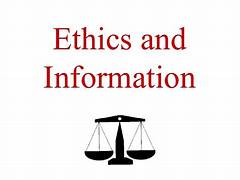Data Security: Addressing Ethical Issues in Business Informatics
Introduction
In today’s fast-paced, data-driven world, businesses are increasingly reliant on information technology (IT) and business informatics to streamline operations, drive growth, and maintain a competitive edge. However, as data becomes the backbone of most enterprises, issues of data security and privacy have become more critical than ever. The ethical considerations surrounding data security are paramount, as they not only influence the protection of sensitive data but also shape a company’s reputation and its relationship with customers, clients, and the public. This article explores the ethical dilemmas that businesses face in managing data security and offers insights into how these issues can be addressed effectively.
The Importance of Data Security in Business Informatics
Business informatics refers to the use of IT systems and data management tools to support business processes, decision-making, and operations. Data is often stored, processed, and transmitted through these systems, making it vulnerable to cyber-attacks, unauthorized access, and breaches. These threats pose not only a financial risk but also a potential breach of customer trust and privacy. In the realm of business informatics, data security is critical for ensuring that sensitive information, such as personal details, financial data, and trade secrets, is protected from exploitation or harm.
Ethically, businesses are expected to implement stringent security measures to safeguard their data assets. This responsibility extends beyond compliance with regulations and industry standards—it also involves upholding moral principles of transparency, accountability, and respect for individuals’ privacy rights.
Ethical Issues in Data Security
Several ethical issues are prominent in the management of data security within business informatics:
- Privacy and Consent One of the most pressing ethical concerns is the issue of privacy. Individuals have a right to control their personal information, and businesses must respect this right when handling data. In many cases, customers provide their personal data with the understanding that it will be kept confidential and used only for specific purposes. However, businesses often collect data for various purposes, sometimes without clear consent or transparency about how it will be used. This lack of informed consent and the potential for data misuse raise significant ethical concerns. Businesses must establish clear privacy policies and practices that are communicated transparently to users, ensuring they are fully aware of how their data will be handled.
- Data Breaches and Responsibility Data breaches are an unfortunate reality in the modern digital landscape. However, when they occur, ethical dilemmas arise about the company’s responsibility to protect customer data. Many businesses focus on securing data, but some fall short, leading to breaches that expose customer information to cybercriminals. Ethically, businesses must take immediate and effective action to address breaches when they occur, notify affected individuals, and provide remediation efforts such as identity theft protection. Failure to address these issues in a timely and responsible manner can result in damage to a company’s reputation, legal consequences, and loss of customer trust.
- Access Control and Employee Behavior Businesses must also address ethical considerations surrounding access to sensitive data. Employees and contractors often have access to various levels of data based on their roles. However, the more individuals who have access, the greater the risk of data misuse, either intentionally or unintentionally. Ethically, organizations should implement strict access control measures and only grant data access to employees who need it to perform their jobs. Additionally, businesses must ensure that employees are trained to handle data ethically and understand the implications of data misuse. Developing an organizational culture that emphasizes ethical responsibility in data security can significantly mitigate risks.
- Third-Party Vendors and Outsourcing Many businesses rely on third-party vendors or outsourcing to handle some of their data processing, storage, and security needs. While outsourcing can offer operational efficiencies, it also presents ethical concerns about who ultimately holds responsibility for data security. Businesses must ensure that any third-party providers comply with the same ethical standards for data security and privacy as they do. In cases where sensitive data is shared with external vendors, businesses must vet these partners rigorously and implement contractual agreements that hold vendors accountable for any breaches or mishandling of data.
- Transparency and Accountability Ethical transparency and accountability in data security are essential to maintaining trust between businesses and their stakeholders. Companies must not only secure their data but also be open about their data security practices. This includes disclosing potential risks, detailing how data is protected, and communicating steps taken to remedy any security flaws. Businesses should also ensure they are accountable for their actions, especially if a security breach occurs. Ethical lapses in transparency and accountability can lead to a significant loss of trust, legal action, and financial repercussions.
Strategies for Addressing Ethical Issues in Data Security
To address these ethical issues, businesses must adopt comprehensive strategies that prioritize security, privacy, and transparency. Here are several steps that can help businesses uphold ethical standards in data security:
- Develop Robust Privacy Policies Privacy policies should outline how data is collected, stored, and used. They must be clear and understandable to consumers, detailing how businesses protect their information and ensuring that data collection practices comply with laws and regulations such as the General Data Protection Regulation (GDPR) and the California Consumer Privacy Act (CCPA). Regularly updating these policies is essential to reflect changes in business operations, data practices, and evolving legal requirements.
- Invest in Cybersecurity Infrastructure Businesses should invest in state-of-the-art cybersecurity systems to prevent data breaches and cyber-attacks. Regular security audits, penetration testing, and vulnerability assessments should be conducted to identify and rectify potential weaknesses in systems. The use of encryption, multi-factor authentication, and secure communication protocols can also help ensure data protection.
- Provide Employee Training on Data Security A well-informed workforce is one of the best defenses against data breaches. Employees should receive regular training on the importance of data security, ethical data handling practices, and how to recognize potential security threats like phishing or social engineering attacks. Ethical behavior regarding data should be a core component of company culture, emphasizing that safeguarding data is not just a technical issue but a moral responsibility.
- Establish Clear Data Governance Frameworks Implementing a clear data governance framework is crucial for managing data ethically. This framework should include rules regarding data access, data retention, data sharing, and accountability. It is important for businesses to designate data stewards who are responsible for overseeing data security and ensuring compliance with ethical and legal standards.
- Adopt Ethical Contracting Practices with Third Parties When outsourcing or collaborating with third-party vendors, businesses must ensure that ethical data handling practices are part of contractual agreements. Vendors should be required to adhere to the same data security standards and take appropriate measures to protect customer data. Contracts should also clearly define liabilities in case of breaches and establish transparency about data practices.
Conclusion
As businesses continue to leverage technology and data for growth and innovation, they must remain vigilant in addressing the ethical challenges of data security. Ensuring the privacy, integrity, and security of data is not only a legal obligation but also an ethical imperative that can significantly impact a business’s reputation, customer trust, and bottom line. By adopting robust security measures, providing transparency, and upholding high ethical standards, businesses can navigate the complexities of data security while fostering long-term success and integrity in the digital age.


